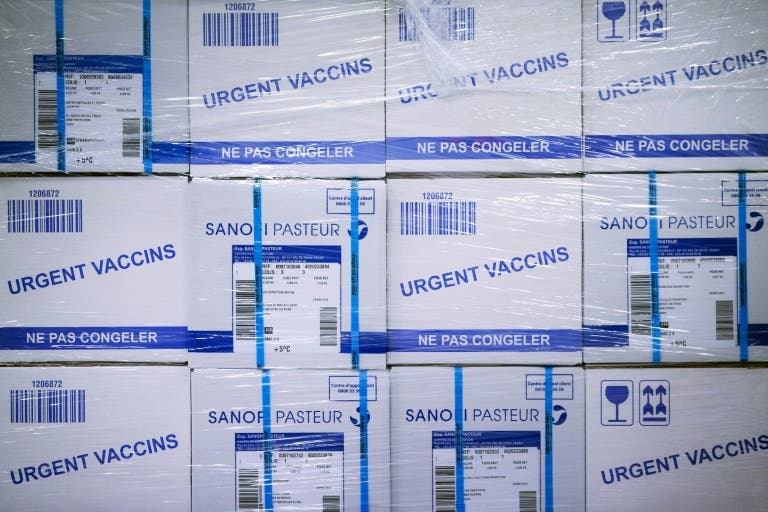Eskom’s load shedding can compromise vaccine storage
Concerns over lack of urgency with logistical planning of the vaccines.

The global race is on to find a vaccine against COVID-19. AFP/File/JOEL SAGET
Experts have warned that South Africa’s power generation woes could jeopardise the Covid-19 vaccine roll-out after state power utility Eskom announced system failures at two of its power stations this week, leading to them implementing Stage 2 load shedding this week.
Energy expert Ted Blom warned that as major industries, such as motoring, were expected to begin production for
the year next week, Eskom was about to face even more capacity shortages.
On Monday, the utility announced it had taken Unit 1 of its Koeberg generators offline, following an increasing leak in the unit. The unit was expected to return to service in May.
At the same time, other units that were delayed from returning to service were due for repairs.
These developments come as the National Command Council on Covid-19 was expected to begin the roll-out of the first batch of vaccines as early as next month.
Blom said that South Africa would not meet the storage capacity needs for the one million doses expected in the first batch without a reliable supply of electricity.
For South Africa, where power generation infrastructure was in crisis mode, Blom warned that this could mean millions of rands worth of vaccines going to waste if an urgent plan was not devised to curb load shedding.
“The availability of the power stations between Christmas and new year’s day was below 50%, meaning we had less than 50% of the installed capacity available to generate power. If it keeps up, we are heading towards disaster,” said Blom.
The demand for electricity between Christmas and new year’s day was 24 000MW. Before this period it fluctuated between 29 000MW and 30 000MW.
“We will likely order at least a million doses at a time. There is other technology which can help, like dry ice, but if you don’t have reliable electricity, you can’t make dry ice either,” said Blom.
“This could become a disaster when that time comes because they will struggle to keep control over their storage conditions.”
Epidemiologist Dr Jo Barnes said the science community was concerned with the lack of urgency with which the logistical planning on the vaccines appeared to be treated.
Sparsely populated and remote areas were impossible to serve in their current state, she said.
Reports she was receiving that municipal workers were being tasked only this month with looking for cold storage facilities in their areas was another sign of impending chaos.
“Why now, when they knew since November last year that all of these vaccines to varying degrees dramatically need massive cold storage capacity otherwise they spoil?
“There seems to be very little logistical planning offered, including cold storage. And who is going to keep those cold storage facilities pristinely sterile so that the vaccine doesn’t get contaminated?” Barnes said.
With the government’s plan to have 40 million people vaccinated this year, the bar was set incredibly high for daily targets, she added.
This would mean that 150 000 people had to be reached every day, seven days a week, every week until the rest of the year.
“We absolutely don’t have the staff. We are recklessly announcing that we are going to get a million doses soon.
That is only for 500 000 people because you usually have to take two shots for it to be effective. So that will be a drop in the ocean. We have more healthcare workers and top politicians than that.”
– simnikiweh@citizen.co.za
For more news your way, download The Citizen’s app for iOS and Android.
For more news your way
Download our app and read this and other great stories on the move. Available for Android and iOS.









